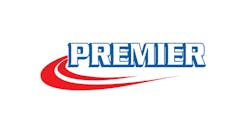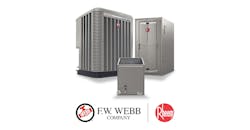While it’s an undeniable thrill to close that next service agreement sale, in the process of doing that we often neglect our existing customer base. Service agreements already in hand represent a huge volume of repeatable margins, as well as opportunities for more repairs, replacements, and retrofits. They’re valuable because they’re known commodities, in known quantities, and the service department should know their specific needs and the peculiarities. A satisfied service agreement customer is usually more forgiving when response time slows. As a result, we sometimes neglect them while chasing new business.
Several years ago I performed a national study on the average life of a service agreement as well as the percentage of cancellations per year. Service agreement customers stay with you for an average, or perhaps an aggregate, of seven years, while the average cancellation rate of the entire base was found to be 7%. As a regional manager earlier in my career, I had some branch managers who could exceed none of their quantitative goals except for the planned cancellation rate.
Why? Timing is everything. It’s almost always too late to save the business when you receive a cancellation letter. I insist our sales team calls on every service agreement customer at least 90 days prior to the agreement’s anniversary date. This allows for time to correct any situations to the customer’s satisfaction. This not to say that we only visit the customers once a year, that’s all too obvious.
During meetings with our technicians, I emphasize that they should keep their eyes and ears open to potential cancellations. They should report them immediately to the respective sales person and service manager.
Why do service agreement customers cancel?
I break the reason into two major categories: price and performance. It can be difficult when a competitor shows up with a price 50% less than yours.
Price. When this is the situation, the sales person should examine the time tasking. By this I mean they should review the tasks our company performs under the agreement, as well as the time it takes to do each task. This will reveal that our price is where it should be unless the customer wants to reduce tasks, coverage, or visits. I also make sure there’s little difference in labor costs with qualified service vendors.
The next step is simple common sense. If the competitor’s and our labor rate is on par with each other and fixed costs are put aside (we all pay the same at the gas pumps and buy trucks for the sameprice), that only leaves a reduction in service coverage as to why their price is less than ours.
Going back to the task list, I ask the customer what tasks he/she would like to eliminate. More often than not, this gets the customer thinking the competitor is going cheap on the front end and will make it up on additional repairs and premature replacements. That’s good news for you.
If the customer’s problem is budgetary, you can reduce a four-time-per-year agreement to three or even two-times-per-year. If it becomes a comparison of hourly rates for residual coverage, make sure the customer understands that an apprentice is not necessarily a bargain. They take longer to diagnose problems (if at all) and longer to remedy them. This also leads to expensive call backs and tenant dissatisfaction.
In the second category — performance — determine whether the performance issue is real or perceived. Sometimes it’s nothing more than a technician failing to leave a service report, which could imply we didn’t do our quarterly inspections. Such internal problems must be addressed frequently. Other performance problems may be out of the contractor’s control. Shipping delays and obsolete components should be addressed immediately with the customer along with some alternate options. If it’s a personality problem with the lead tech, apologize and switch techs.
It’s always better to be proactive than reactive. We use a simple five-question card that sales people leave with the customer at least once a year. The card reads:
- How would you rate our service from 1-10 with 10 being excellent?
- Is our response time meeting your expectations?
- Do our technicians communicate to you about problems?
- Do our technicians respond in a courteous manner and leave the job site in a tidy manner?
- If there would be one thing you could change about how we serve you, what would it be
Some would argue this is just asking for criticism, but if there are problems, this can smoke them out in time to remedy. We must always recognize the service agreement base is the most valuable asset a contractor owns. If you don’t believe it, ask a contractor who has recently sold their business.
Earl King is the founder of King Productions International, a commercial HVAC
contracting sales consulting firm based in Texas. He speaks to associations and HVAC trade groups, and consults with commercial contractors across the country. E-mail Earl at: [email protected] or call him at 515/321-2426.










